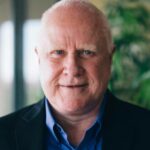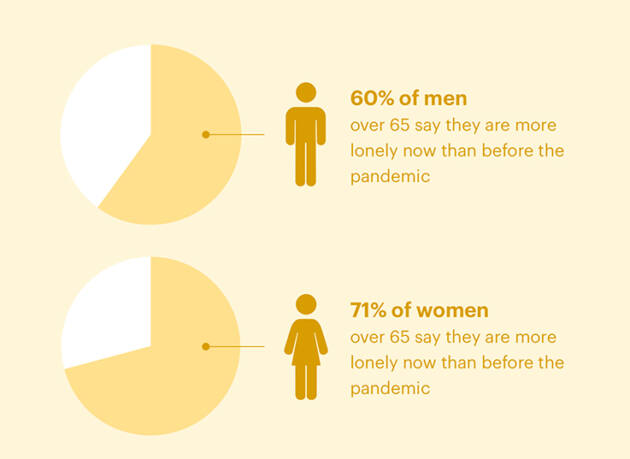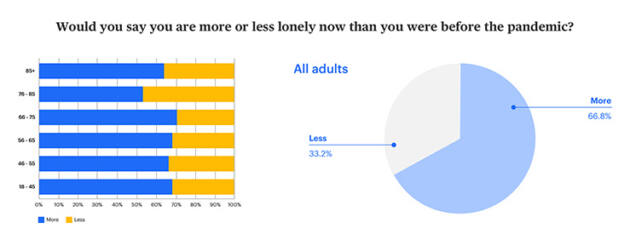New movement tackles loneliness by plugging retirees into service
If there’s a retired individual in your life, chances are, they’re experiencing loneliness.
Studies have found that isolation and loneliness are significant factors for decline in health as a person ages. During covid, the issue was exacerbated as lockdowns and fear kept many people apart. But even without covid, there’s a growing realization that loneliness continues to spread, unabated by social media.
The facts on loneliness and health
- 28% of seniors live alone, totaling more than 14.7 million people (5 million men and 9.7 million women).
- Loneliness and social isolation increase the risk of dementia by 50%. Other health risks related to loneliness include:
- Stroke: Risk increases by 32%
- Heart disease: Risk increases by 29%
- Mental health disorders: Risk increases by 26%
- Premature mortality: Risk increases by 26%
- The health effects of loneliness are equivalent to smoking 15 cigarettes each day.
Now, a national movement aims shake up older Americans’ approach to retirement after age 50 and in the process, combat what can be deadly loneliness.

The faith-based Retirement Reformation, says they have a solution. It was founded to assist those over 50 with a new take on retirement. People, they say, should look on it as an opportunity to serve God in new ways, sharing their wisdom, experience and resources. The group also assists organizations and churches in maximizing the gifts of a largely untapped constituency by equipping older members and supporters for active involvement in ministry.
Led by 81-year-old speaker and author Bruce Bruinsma, the it has launched a new podcast series to help seniors recognize the health-ravaging “symptoms” of chronic loneliness and take steps to counter it. He recently was a guest on Moody Radio.
Retirement Reformation, says Bruinsma, equips seniors to engage in meaningful roles in their post-working life.
“Elvis sang ‘I’ll be so lonely, I could die,’” said Bruinsma. “Sadly, those words ring true for many of us.”
Recent studies show loneliness affects a huge number of older Americans.
One-in-three senior adults ages 50-80 said they were “sometimes” or “often” lonely, according to a survey by the University of Michigan. A separate AARP survey reported similar results.
“Loneliness is a senior plague that we need to address right now,” Bruinsma said.
Loneliness: ‘As Harmful As Smoking’
Loneliness “significantly” increases the risk of premature death, according to the U.S. Centers for Disease Control (CDC), comparing the “health risks of loneliness” with smoking, obesity, and physical inactivity.
Loneliness also increases the risk of dementia by 50%, stroke by 32%, and heart disease by 29%, the CDC reports, linking it to higher rates of depression, anxiety, and suicide.
To combat loneliness, America needs more groups and organizations “that bring meaning and purpose” to seniors’ lives, geriatrician Linda Fried told a panel of the National Academies of Sciences, examining the impact of loneliness.
“America’s seniors are finding that it’s not fulfilling or healthy to ‘do nothing’ in retirement and cut yourself off from others,” Bruinsma said. “They’re looking for real purpose and meaningful connections that enrich their lives, and that’s where the Retirement Reformation community can help them discover their new role and get plugged in.”
Loneliness: Deeply Challenging
According to TheConversation.com — an academic news site — “loneliness can often be oversimplified or reduced to how many friends a person has or how often they see their loved ones.”
But researchers that conducted 80 in-depth interviews with seniors as part of The Loneliness Project said aging “brings about a series of inevitable losses that deeply challenge people’s sense of connection to the world around them.”
The deepest sense of loss — and loneliness — comes following the death of a spouse or long-term partner, researchers found.
“Whatever the cause of their loneliness, people need to know there is light at the end of the tunnel and there are always opportunities to overcome loneliness and make meaningful life connections again, no matter how old you are,” Bruinsma said.
For more information, visit Retirement Reformation (www.retirementreformation.org) was
–Dwight Widaman and Mission Box News










